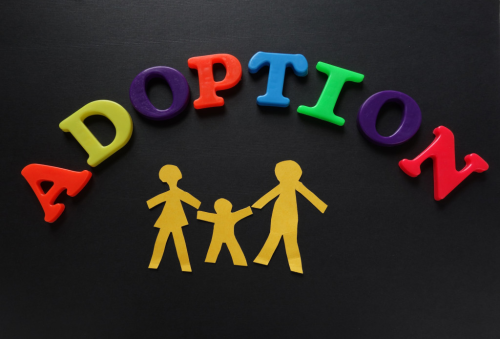ARTICLES
Inheritance Rights of Adopted Children in Nigeria: Understanding the Legal Position

In Nigeria, the legal position regarding the passing of an adopted child is determined by the Child’s Rights Act of 2003. This Act governs the rights and welfare of children in the country, including matters of inheritance and succession.
According to Section 159 of the Child’s Rights Act, an adopted child is treated in the same manner as a biological child for the purposes of inheritance and succession. This means that upon the death of an adopted child, their estate will be subject to the laws of intestate succession or any valid will left by the deceased child.
ICC Prosecutor Stresses Unimpeded Aid Access to Gaza, Cautions on Likely Criminal Implications
Intestate succession refers to the distribution of an individual’s estate when they die without a valid will. The specific rules of intestate succession in Nigeria may vary depending on the applicable customary law or the State’s Administration of Estates Law. However, the general principle is that the estate is distributed among the deceased’s legal heirs, including adopted children.

In support of this legal position, several authorities can be cited. One notable authority is the Child’s Rights Act itself, which explicitly states in Section 159 that an adopted child is to be treated as a biological child in matters of inheritance and succession. This provision reflects the intention of the legislature to ensure equal treatment and protection for adopted children.
Furthermore, the Nigerian Supreme Court has also affirmed the equal rights of adopted children in inheritance matters. In the case of Ogunbiyi v. Ogunbiyi (2010) 11 NWLR (Pt. 1201) 1, the Supreme Court held that an adopted child has the same rights as a biological child and is entitled to inherit from their adoptive parents’ estate.

Chief of Staff to Adamawa Speaker Kidnapped, Police Vow to Rescue Journalist
It is important to note that the rights and entitlements of an adopted child may also depend on the terms and conditions of the adoption order or agreement. Adoption orders typically grant the adopted child the same rights and privileges as a biological child, including inheritance rights. Therefore, it is crucial to review the specific adoption order and any associated documents to determine the extent of the adopted child’s rights concerning inheritance.
In conclusion, the legal position in Nigeria is clear that when an adopted child passes on, they are treated in the same manner as a biological child for the purposes of inheritance and succession. The Child’s Rights Act and relevant court decisions support this position, emphasizing the equal rights and protection afforded to adopted children in inheritance matters.
It is advisable to consult with a qualified legal professional to obtain precise guidance based on the applicable laws and circumstances of the specific case.
Stella C. Akupue

Click Button Below to Join Our Telegram Groups

For Advert Inquiries & News/Article Publishing
Call:+2348033888791, +2347069999005
E-mail: legalattorneyblog01@gmail.com





















